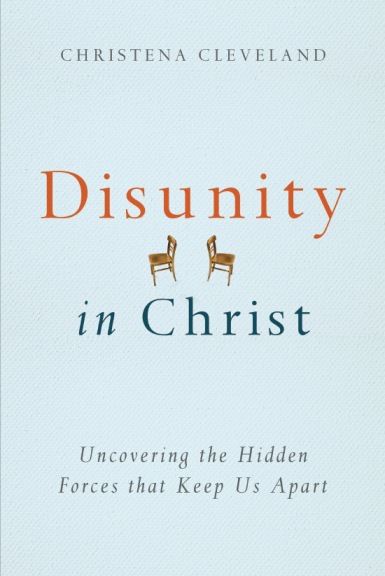I think about Christian unity a lot. I’m convinced that unity is one of the first implications of the Gospel though it is often the first implication to be overlooked, reduced, or explained away. As much as I’m theologically convinced about the priority of unity I’m even more convinced emotionally. Belonging to multi-ethnic congregations for the past five years and finding identity within a diverse community of Christians has been enough to convince my heart that unity is far more of a benefit than it is a goal. It’s true that unity involves hard work but it is also a profound joy.
The challenge and joy of Christian unity is tied up in our belief that unity involves those who are incredibly different than myself. Unity is Christian when the community is made up of diverse others, individuals who were once them but are now us. Most Christians in my experience are great with the idea of diverse unity. We believe our churches to be hospitable to all kinds of people regardless of a person’s race, ethnicity, culture, history, etc. So why aren’t our churches more diverse? The answers generally given to this question just barely acknowledge the real challenges to unity. Instead we default to cliches about cultural preferences and styles of worship. Experiencing the robust unity we read about in the New Testament requires setting aside simplistic answers and acknowledging the real hurdles that keep us from experiencing the formational and joyful community that is meant to define us.

Christena Cleveland has written a book that does exactly this. Professor Cleveland teaches social psychology at St Catherine University and is fluent in the norms and challenges facing churches that strive for diverse unity. Disunity in Christ: Uncovering the Hidden Forces That Keep Us Apart takes on some very specific and pervasive dynamics that face any church striving for unity. There are few academics that mine their disciplines for the good of the church as well (and accessibly) as Cleveland does in Disunity in Christ. The result is a book that does three things very well.
First, Cleveland draws heavily from her area of professional expertise, social psychology, to explain some of the reasons we find unity so hard. This was new territory for me. I’m used to thinking theologically and historically about these things. Disunity in Christ provides an entirely new set of lenses through which to examine the obstacles to unity. Most of the book’s chapters are built around insights into social dynamics and psychology, each with clear implications for the church. For example, Cleveland writes about the “gold standard” which involves a strong bias to spend time with those most like ourselves thereby ensuring that we see ourselves as the benchmark by which others are judged. When unacknowledged, the gold standard creates a dynamic in which those unlike us are only truly welcomed once they become more like us.
Second, Disunity in Christ is written by an author who is committed to the church. That is, her language and examples clearly have in mind those within local churches. Cleveland demonstrates an enviable ability to flow in and out of different church traditions, writing to a genuinely diverse audience. It was very refreshing to read an author on this subject who can speak knowledgably and authentically about the differences made by race, culture, and history. No tokenism here!
Finally, despite the overall bend of the book to point out the “hidden forces that keep us apart”, Cleveland manages to keep the tone hopeful. This is harder than it might sound. The further you dig into the challenges to unity – and Cleveland digs deep – the more discouraged one is tempted to become. While Disunity in Christ is by no means primarily theological, Cleveland writes as a believer- both in the Gospel and its power in the face of even the greatest forces of division. Her hopeful tone allows the reader to take seriously these forces without ever becoming overwhelmed by them.
As the pastor of multi-ethnic church I have a shelf full of books that I turn to regular for insight and clarity when things get muddled. Disunity in Christ has been added to that shelf of valuable books. I expect to return to it regularly.

Leave a comment